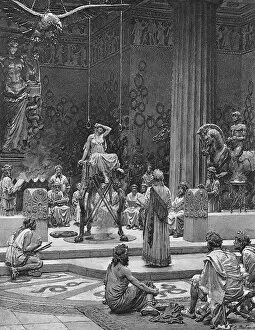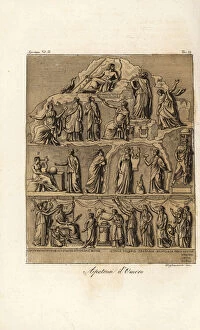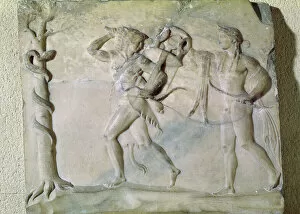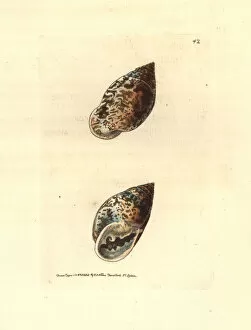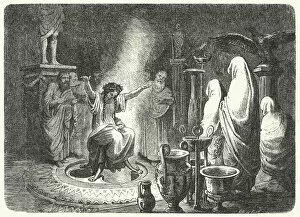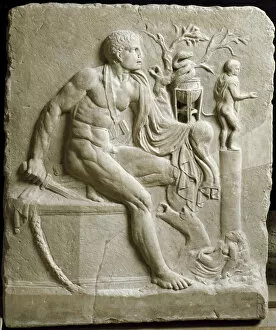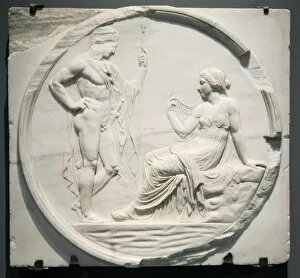Pythia Collection
Pythia, also known as the Pythoness, holds a significant place in ancient Greek mythology and history
For sale as Licensed Images
Choose your image, Select your licence and Download the media
Pythia, also known as the Pythoness, holds a significant place in ancient Greek mythology and history. As the High Priestess of the Temple of Apollo at Delphi, she was believed to possess divine powers of prophecy. The apotheosis of Homer by Archelaus of Priene beautifully captures her mystical aura. Intricate tablets depict Hercules carrying off the Delphic Tripod in front of Apollo, symbolizing the importance placed on this sacred site. The marble sculpture portrays Orestes seeking guidance from Pythia's oracle, highlighting her role as a trusted advisor during critical times. The Pythia scarabaeus snail is named after this revered figure due to its resemblance to her mythical presence. Engravings and chromolithos immortalize her image, showcasing her influence on Greek society. Delphi itself was renowned for hosting events like the Pythian Games held in its grand stadium. Even Alexander the Great sought counsel from Pythia before embarking on his conquests. Legends tell us that even Spartans consulted with Oracle at Delphi when deciding whether to wage war against Athenians during the Peloponnesian War, and is said that Achilles himself sought wisdom from Pythia through Roman carvings. Pythia remains an enigmatic figure who bridged mortals with gods through divination and foresight. Her legacy lives on through art and historical accounts, reminding us of our fascination with ancient civilizations and their belief systems.

